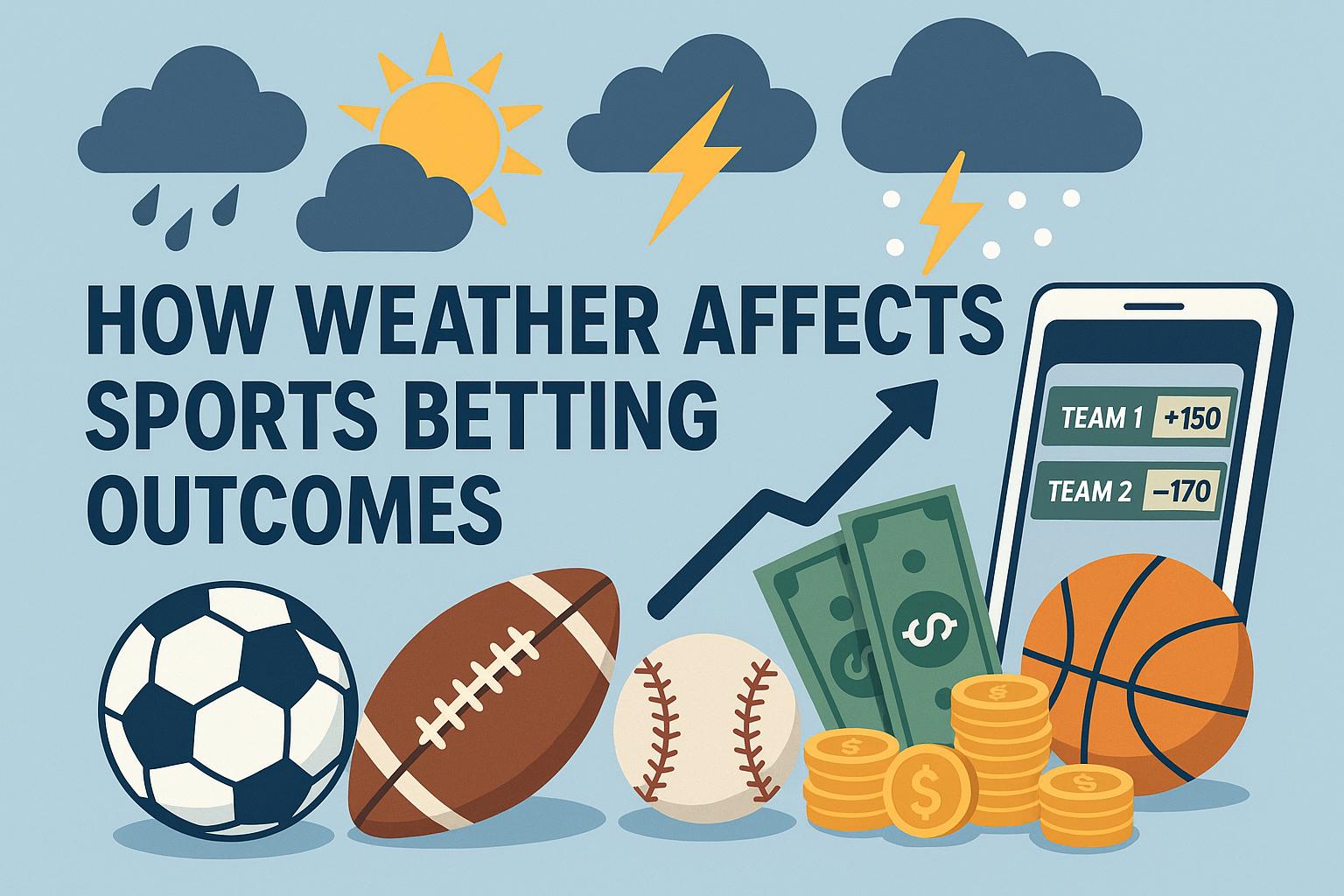How weather affects sports betting outcomes.

Understanding Weather’s Impact on Sports Betting
Weather is an ever-present factor in outdoor sports events, and understanding its potential impact can be crucial for sports bettors. Weather conditions such as rain, wind, and temperature fluctuations can significantly affect the performance of athletes and the overall dynamics of a game. For bettors, comprehending these variables is essential in making informed decisions regarding their wagers.
Weather Conditions and Their Influence
In outdoor sports, the environment can dramatically shape the course and outcome of games. It is critical to understand how varied weather conditions directly influence the game and the players involved. The primary weather conditions that can impact sports outcomes include rain, wind, and extreme temperatures. Each of these elements plays a different role in altering the expected performance of players and the game itself.
Rain
Rain can lead to slippery surfaces and affect the accuracy and control of players in sports like football, soccer, and tennis. In football, for instance, a rain-soaked field reduces the ball’s travel distance, often resulting in a more defensive game. The presence of rain can make the field unpredictable, with players struggling to maintain their footing and execute precise maneuvers. Additionally, the increased risk of injuries may alter team dynamics and potentially lead to unexpected outcomes. Therefore, rain introduces an element of uncertainty, which can greatly influence the decisions made by sports bettors.
Wind
Wind is particularly influential in sports such as golf, baseball, and soccer. For instance, in baseball, wind direction and speed can alter the flight of the ball, making home runs more or less likely based on whether the wind is blowing inward or outward. Similarly, in golf, strong winds can significantly change the trajectory of the ball, demanding greater skill from the players. Soccer matches played in windy conditions often see unpredictable ball movements, challenging the players’ control and passing strategies. Wind forces players and coaches to adjust their game plans dynamically, highlighting the unpredictability it introduces into sports.
Temperature Extremes
Extreme temperatures, whether hot or cold, can affect athlete performance. Heat can cause exhaustion and dehydration, compromising players’ ability to maintain peak physical performance. Conversely, cold weather can lead to stiffness and reduced agility, impacting players’ performance on the field. Sports such as marathon running or American football, played under extreme temperatures, often see noticeable impacts on performance and game outcomes. The ability of athletes to adapt to these temperature conditions can often make the difference in games. For bettors, understanding how different teams and players handle these extremes can offer valuable insights when placing bets.
Adapting Betting Strategies
Given the influence of weather on sports outcomes, bettors need to integrate weather considerations into their strategies. Monitoring weather forecasts and understanding how particular weather conditions affect different sports can enhance betting decisions. Websites such as Weather.com provide up-to-date weather information that can be crucial for assessing sports events. By having access to real-time weather data, bettors can make better predictions and adjust their bets accordingly.
Moreover, sportsbooks may adjust their odds based on predicted weather impact, creating opportunities for attentive bettors. For instance, if an event is expected to be heavily influenced by adverse weather, odds may shift to account for this, and being aware of such changes offers potential advantages for bettors. Understanding these adjustments requires both a keen eye and the ability to interpret weather forecasts in the context of the sport in question.
Considerations for Different Sports
Weather elements affect sports in varying ways, making it important for bettors to consider how specific conditions relate to the sport they are betting on. In baseball, the unpredictability induced by wind can see lower or higher scoring games based on whether it helps or hinders hitters. For soccer, wet and slippery conditions may favor defensive teams by slowing down the pace of the game. Such insights can influence betting choices and outcomes.
Accessing Weather Forecasts
Incorporating weather data into sports betting requires access to reliable forecasts. Online platforms that provide accurate weather predictions are indispensable tools for bettors. Websites like Weather.com offer detailed weather information essential for analyzing prospective game conditions. Bettors can gain an advantage by synthesizing this information with their understanding of sports dynamics and team performances under specific weather conditions.
Conclusion and Integration
The impact of weather conditions on sports outcomes underscores the complex nature of sports betting. While it is one of many factors, weather’s unpredictability makes it an important variable for bettors to consider. An integrative approach to betting involves understanding the interplay between weather and sport, leveraging real-time data and considering how changes in the weather can affect the players, teams, and ultimately, the game’s outcome. By incorporating weather forecasts into their analysis, bettors may improve their chances of making successful wagers and understanding the broader dynamics of sports events.
In conclusion, as much as athletes and teams prepare for their games, sports bettors must similarly prepare for the influence of environmental conditions. Employing a disciplined approach that accounts for weather can offer a distinct advantage, potentially leading to more successful betting strategies that recognize and exploit weather’s inherent role in game dynamics.
